If you are looking for a way to replace missing or damaged teeth, Dental Implant System may be the most beneficial option to pick. Dental implants are tiny screws that dentists use during the replacement of broken or missing teeth. Dental implants are used to replace single or multiple teeth. These screws are inserted into the jawbone and act as the root of a natural tooth.
Dental Implants are incredibly strong, can last a very long time and also feel natural in your mouth. But most importantly, they can be the solution for all different types of dental treatment. Many patients have stated they can feel little to no difference between their implanted teeth and their natural teeth.
Because dental implant surgery can be used to replace single, multiple or even a full set of teeth, there are naturally different implants for different jobs. A wide variety of dental implants have been produced to fulfil a unique purpose.
Each dental implant surgery will be a different one, and your dentist should have different implants available at their clinic. If you are curious about how dental implants can vary, what the difference is between the different implant brands, and why it’s important, then read on.
What are dental implant systems?
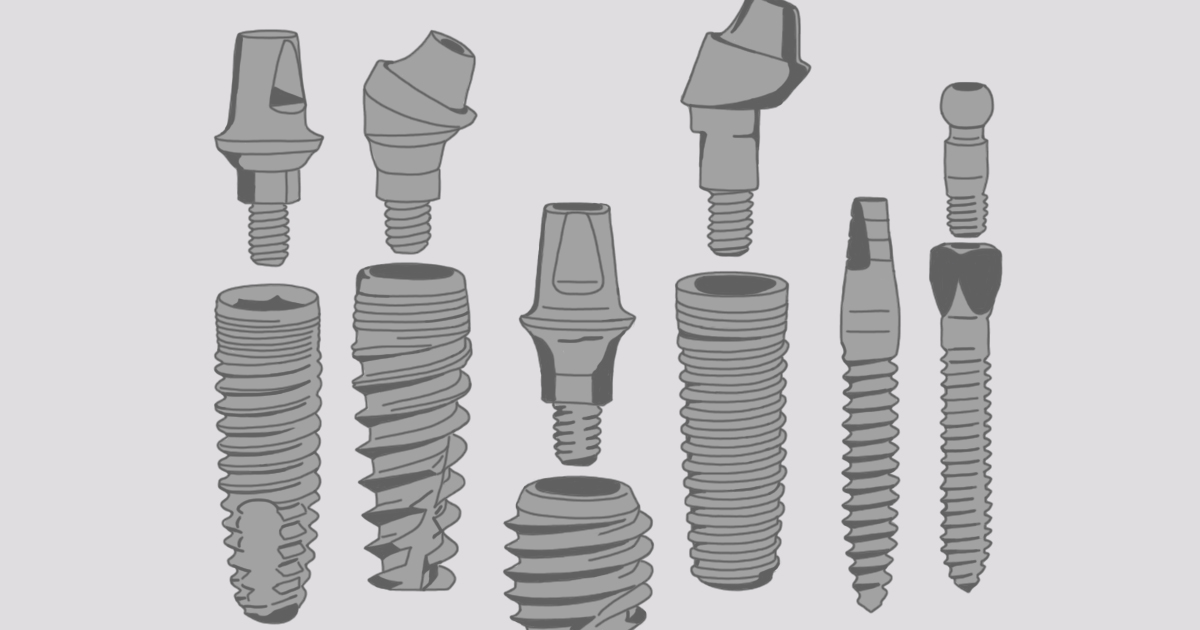
Many dental implant manufacturers refer to their implants as “dental implant system”. There is a broad range of implant systems that each function and can be beneficial in different ways.
It would be incorrect to say that all implant systems are the same. But what defines a specific dental implant system, and how do they differ? Below are some of the defining characteristics that dental implant systems can have;
Materials
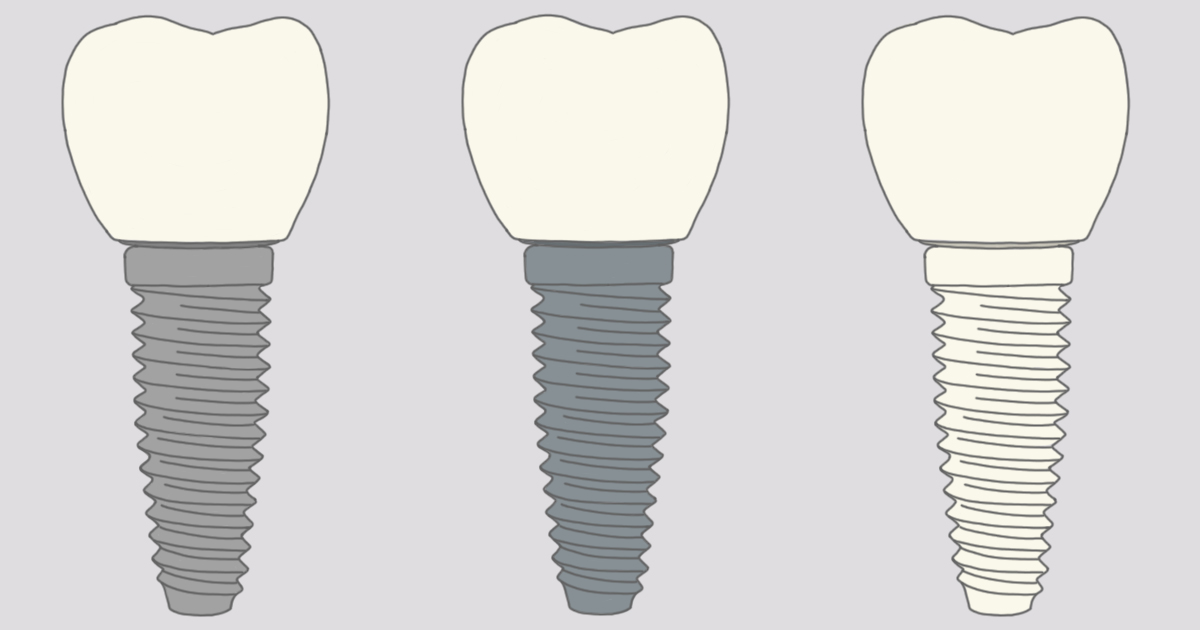
Since dental implants are designed to integrate with the jawbone, they must be composed of sturdy elements. However, dental implant system can vary in strength and material. The most common material used for dental implants is titanium. Titanium is one of the sturdiest metals, so it comes as no surprise that they work very well as a dental implant material.
Titanium implants have also been in use for many years. Additionally, it has a long history of success. Most professionals would recommend titanium implants in most situations, thanks to their biocompatibility, toughness, and excellent healing capabilities. However, dental implants can still be composed of something entirely different.
A more recently introduced material in dental implant systems is zirconia. Zirconia implants are white and look more aesthetically pleasing. However, they aren’t as sturdy as titanium implants and haven’t been in use for as long.
A third component used for implants is known as “titanium alloy”. Instead of being entirely composed of titanium, titanium alloy implants have additional materials within its composition. Similarly to how other materials can be used to increase the strength of steel, these materials help to increase the sturdiness of an implant.
Learn more about titanium and zirconia implants here.
Shapes, sizes and threads
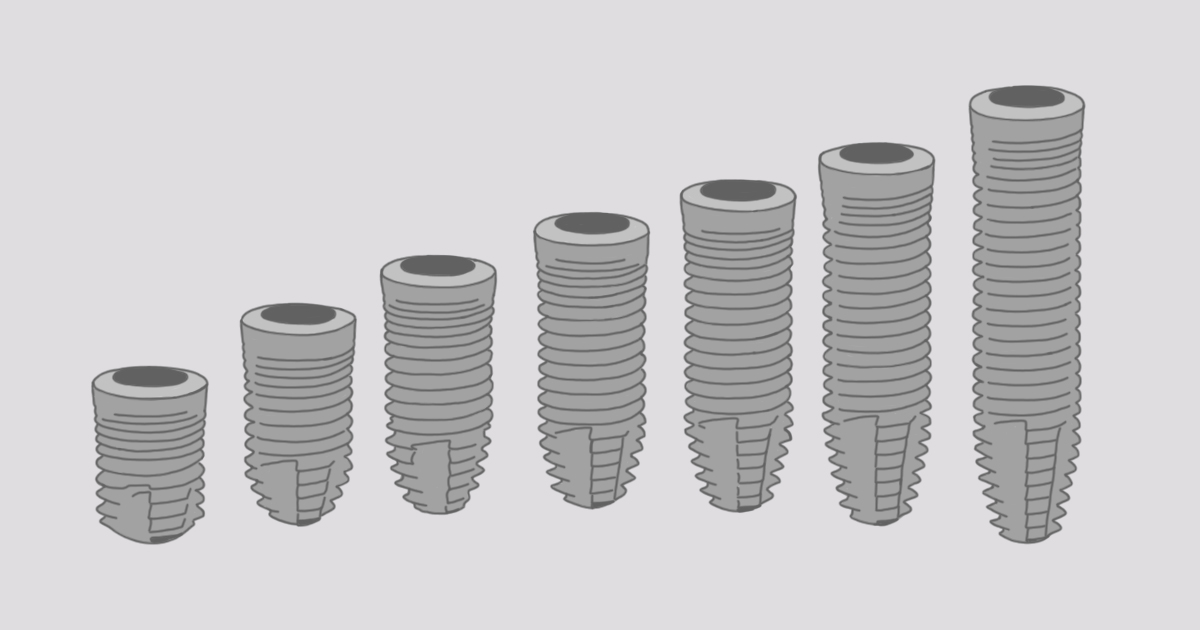
Dental implants come in numerous shapes and sizes, and each of them is made to fit in a specific part of the mouth.
For example, there are smaller implants for limited amounts of bone, thin implants for narrow areas of bone, and more ample implants that provide greater strength and anchorage.
The type of teeth that need replacing will determine what dental implant is best to have when it comes to shape and size. Most dental implants have a cylindrical shape. However, some are tapered or cone-shaped in design.
Your dentist will take note of the density and strength of your jaw before choosing the right shape and size of an implant. For example, a smaller implant would be better to use if you have a weaker jawbone.
After being placed into the jawbone, a dental implant fuses to the jawbone while it heals. Therefore, the threading of an implant also plays a vital role.
The threading is what secures the implant to the bone. Much like how you see a spiralling layer surrounding a nail or screw, the same mechanism applies to a dental implant. These threadings can vary in thickness and curvature, and the choice of which type to use will also depend on your jaw’s bone quality.
Surface textures
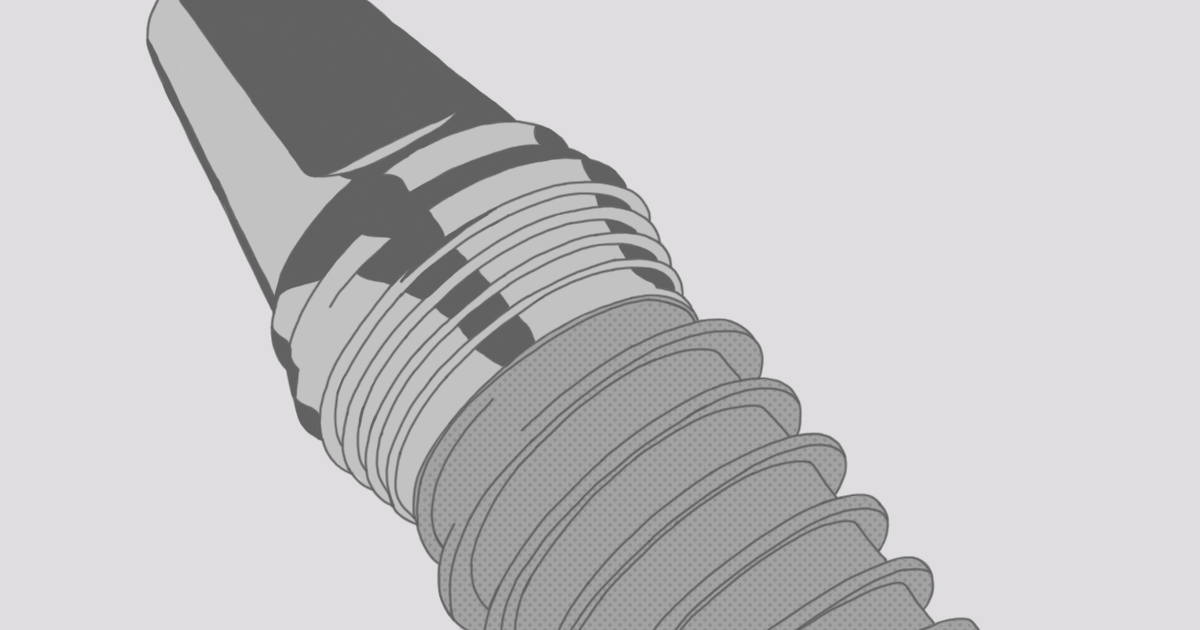
The surface texture of a dental implant will also affect its placement in the jaw. While all dental implants are made to feel like your natural teeth, implants can still vary in surface texture. These can range from smooth surfaces to ones that have better grip. You can even find implants that are textured differently in specific areas.
Professionals can also coat dental implants in a compound which can speed up the healing process, decrease the risk of infection or promote the fusion of the implant and the bone, known as “osseointegration”.
Abutments
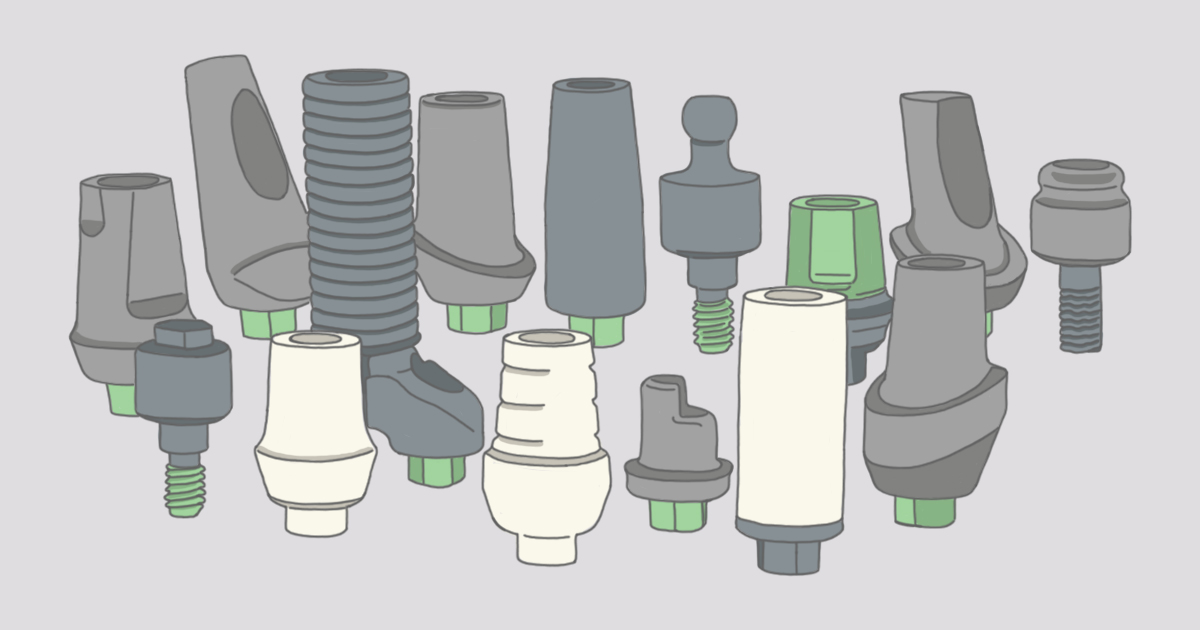
An abutment is a small attachment that connects the implant with a replacement tooth. Seen as implants aren’t always used to replace a single tooth, there are just as many different abutments, as there are implant systems. Much like the implants themselves, abutments also come in different materials, shapes and sizes.
Abutments also come in various angles, for instances where an implant only fits if placed at an angle. The angled abutment helps to keep the replacement tooth in line with the rest in this scenario.
Learn more about abutments here.
Which implants are the best to have?

With all of the different attributes of a dental implant covered, it goes to show that one type of implant and another can differ significantly. We carry a wide variety of implant systems to cover a range of patient cases. Consequently, there is no entirely better or worse type of dental implant.
But in terms of the dental implant systems on the market, the more renowned providers include Straumann or Nobel Biocare. These companies have been manufacturing dental implants for longer, giving their implants more time to be tried and tested. However, there are still many competitors and newer companies in this highly competitive market.
The best way to find out which implant is the right one for your treatment is from your dentist. The preparation stage before your surgery will allow your dentist to conduct an in-depth analysis of the quality of your jaw and oral health. That way, it will be easier for your dentist to find the most feasible implant to use.
Choosing the right implant system will depend on your personal preferences and the professional opinion of your dentist. It is also highly likely that your dentist will be using a brand that they are comfortable and knowledgeable in using.
If you wish to have a better idea of what a dental implant looks like, you can watch the video below.
At Brighton Implant Clinic, we provide cosmetic restorations and dental implant treatments, suited for replacing single, multiple, or entire rows of teeth. Founded in 2009 by Dr Silva, we promise to provide our patients with first-class dentistry and only the best patient care. Be that in routine procedures, cosmetic treatments, or complex dental implant surgery.

